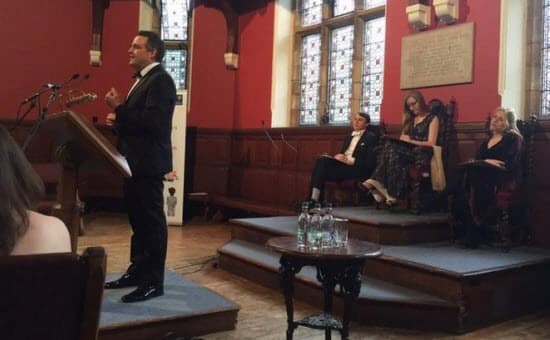(Source: Techworld)
Phil Libin, founder and CEO of Evernote, was one of the guest speakers during Silicon Valley Comes to Oxford which was hosted at Oxford’s Said Business School a fortnight ago.
As part of the conference there was a debate held at the Oxford Union, the world’s oldest debating society, the motion being “This House Believes that Humanity’s Augmentation with Technology Creates a Better World”.
The debate was a heated one, and Libin was a speaker for the proposition.
In making the case for technological progress in general (as you would expect from a tech founder), and for human augmentation in particular, Libin argued that “[t]he upsides of making people better and making people smarter will far outweigh the downsides.”
At the same time he was quick to acknowledge that some of the potential risks associated with human augmentation are likely to come true, and we will need to be prepared to minimise and mitigate these risks.
These risks were variously acknowledged to include (a) the creation of an unrivalled and potentially immortal tech elite, (b) the creation of artificial intelligence which has been characterised by Stephen Hawkings and Elon Musk as a technology with extreme downside risks, and (c) the creation of greater inequality worldwide since only the wealthy will be able to purchase augmentation technology in the early stages, and so they may gain a self-sustaining advantage over everybody else.
In response to the risks outlined by the opposition team including their references to Murphy’s law, Libin proposed a law of his own.
“The opposition talk very intelligently about Murphy’s Law … but there’s an alternative to Murphy’s Law, which I’d like to propose here. In fact, I would very much like from here on out, for this to be known as Libin’s Law … It’s the combination of Murphy’s Law and Moore’s Law. It says that the number of things that go wrong will roughly double every year and it’s for this reason that we need technology and that we need augmentation.”
Whether it be artificial intelligence, or some other form of existential threat like climate change or nuclear proliferation, are you inclined to agree with Phil Libin? Do we need to augment humanity in order to protect and save it from these escalating risks?
